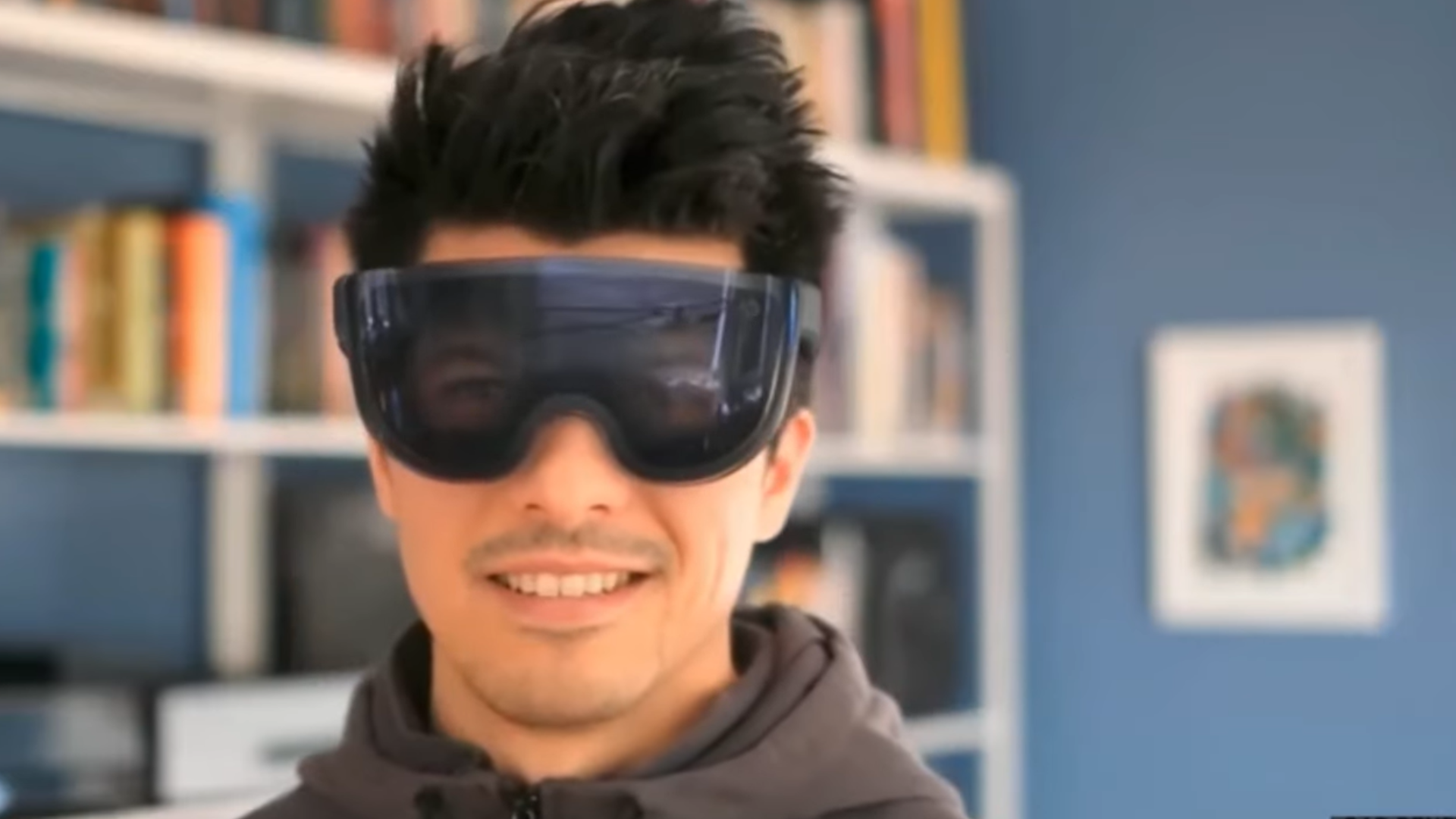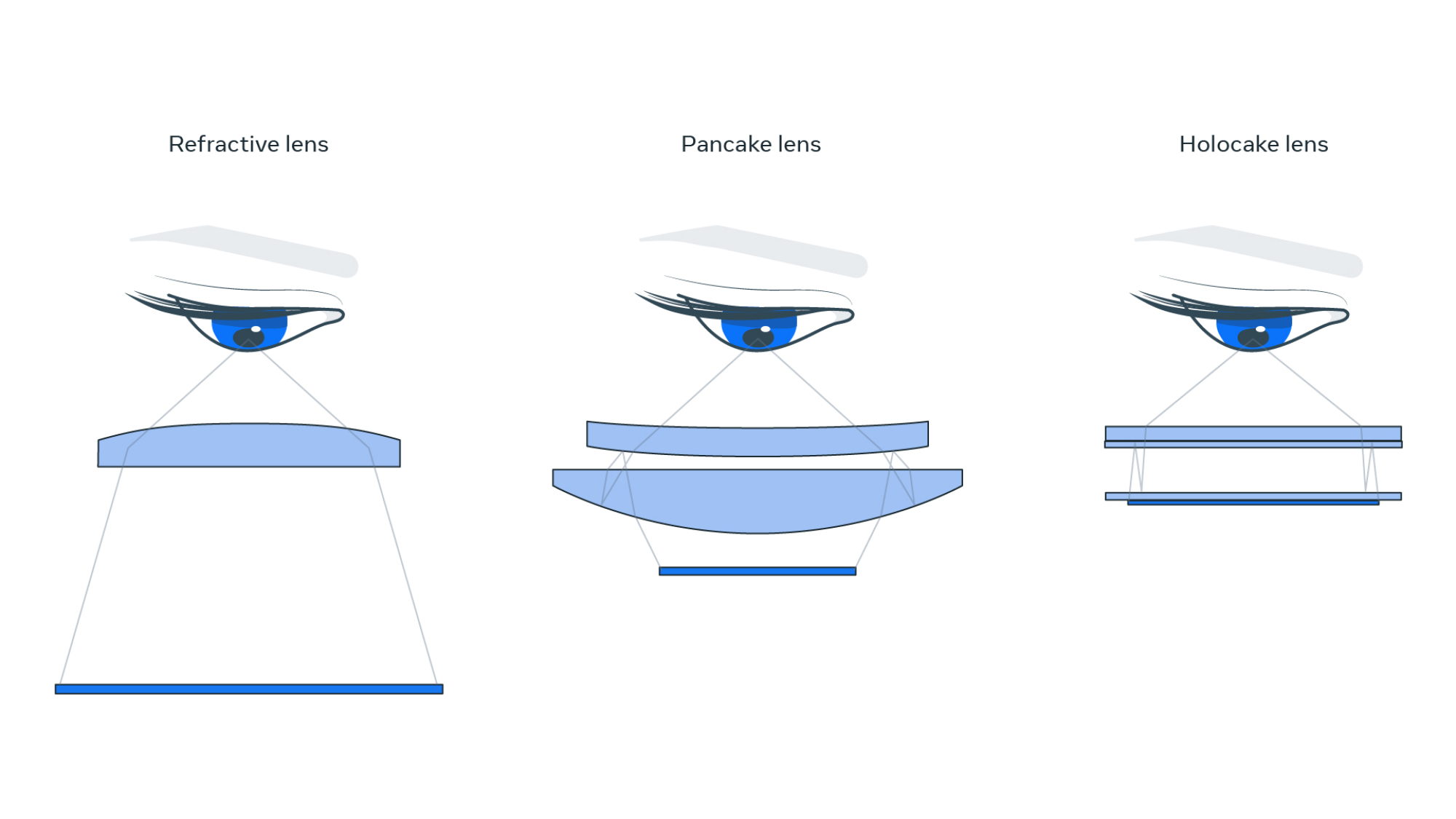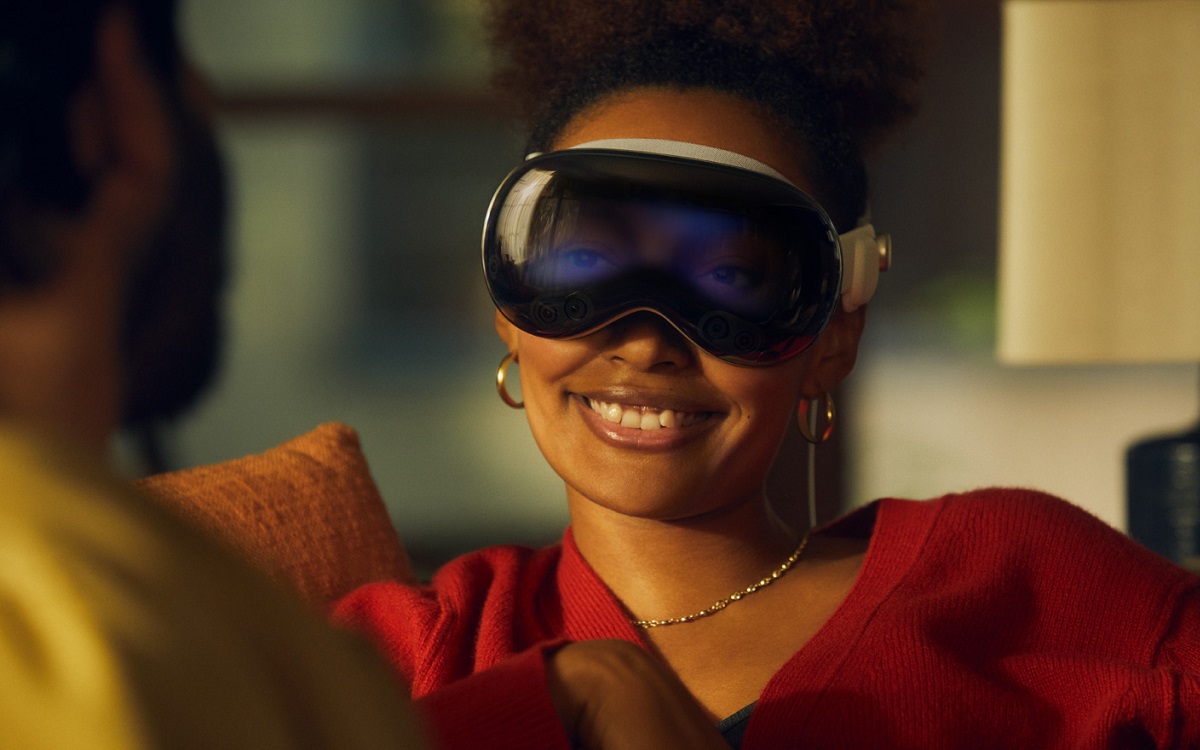
Meta has teased a super impressive XR headset that looks to combine the Meta Quest Pro, Apple Vision Pro and a few new exclusive features. The only downside? Anything resembling what Meta has shown off is most likely years from release.
During a talk at the University of Arizona College of Optical Sciences, Meta’s director of display systems research, Douglas Lanman, showed a render of Mirror Lake – an advanced prototype that is “practical to build now” based on the tech Meta has developed. This XR headset (XR being a catchall term for VR, AR and MR) combines design elements and features used by the Meta Quest Pro and Apple Vision Pro – such as the Quest Pro’s open side design and the Vision Pro’s EyeSight – with new tools such as HoloCake lenses and electronic varifocal, to make something better than anything on the market.
We’ve talked about electronic varifocal on TechRadar before – when Meta’s Butterscotch Varifocal prototype won an award – so we won’t go too in-depth here. Simply put, using a mixture of eye-tracking and a display system that can move closer or further away from the headset wearer’s face, electronic varifocal aims to mimic the way we focus on objects that are near or far away in the real world. It's an approach Meta calls a “more natural, realistic, and comfortable experience”.
You can see it at work in the video below.
HoloCake lenses help to enable this varifocal system while trimming down the size of the headset – a portmanteau of holographic and pancake.
Pancake lenses are used by the Meta Quest 3, Quest Pro, and other modern headsets including the Pico 4 and Apple Vision Pro, and thanks to some clever optic trickery they can be a lot slimmer than lenses previously used by headsets like the Quest 2.
To further slim the optics down, HoloCake lenses use a thin, flat holographic lens instead of the curved one relied on by a pancake system – holographic as in reflective foil, not as in a 3D hologram you might see in a sci-fi flick.
The only downside is that you need to use lasers, instead of a regular LED backlight. This can add cost, size, heat and safety hurdles. That said, needing to rely on lasers could be seen as an upgrade since these can usually produce a wider and more vivid range of colors than standard LEDs.

When can we get one? Not for a while
Unfortunately, Mirror Lake won’t be coming anytime soon. Lanman described the headset as something “[Meta] could build with significant time”, implying that development hasn’t started yet – and even if it has, we might be years away from seeing it in action.
On this point Mark Zuckerberg, Meta’s CEO, added that the technology Mirror Lake relies on could be seen in products “in the second half of the decade”, pointing to a release in 2026 and beyond (maybe late 2025 if we’re lucky).
This would match up with when we predict Meta’s next XR headset – like a Meta Quest Pro or Meta Quest 4 – will probably launch. Meta usually likes to tease its headsets a year in advance at its Meta Connect events (doing so with both the Meta Quest Pro and Quest 3), so if it sticks to this trend the earliest we’ll see a new device is September or October 2025. Meta Connect 2023 passed without a sneak peek at what's to come.

Waiting a few years would also give the Meta Quest 3 time in the spotlight before the next big thing comes to overshadow it, and of course let Meta see how the Apple Vision Pro fares. Apple’s XR headset is taking the exact opposite approach to Meta’s Quest 2 and Quest 3, with Apple offering very high-end tech at a very unaffordable price ($3,499, or around £2,800 / AU$5,300).
If Apple’s gamble pays off, Meta might want to mix up its strategy by releasing an equally high-end and costly Meta Quest Pro 2 that offers a more significant upgrade over the Quest 3 than the first Meta Quest Pro offered compared to the Quest 2. If the Vision Pro flops, Meta won’t want to follow its lead.







